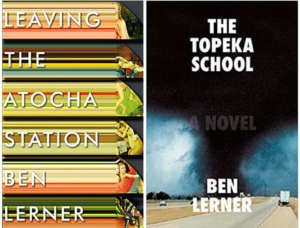
Ben Lerner’s Theater of Dissent
Ben Lerner’s second Adam Gordon novel, The Topeka School, offers both a genealogy of right-wing political speech and, presumably, an alternative. But insofar as the novel’s politics culminate in political theater, that alternative is reduced to the politics of the status quo. The Topeka School, and those critics for whom its success rises or falls on its ability to provoke aesthetic experience, conflate political experience and political action. While no work of art is likely to do the work of dismantling structures of inequality for us, the work of art that asserts its irreducibility to the “inflexible laws” of the political status quo, and our experiences of it, might provide a new way of seeing or imagining it together—something that the attention to aesthetic and political experience alone cannot do.


